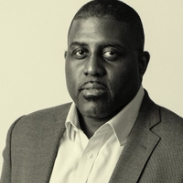THE NEWS  Michele Spatari/AFP via Getty Images Michele Spatari/AFP via Getty ImagesThe main winners in Nigeria’s banking sector after a botched currency overhaul are two Chinese-owned fintech apps. Vendors and customers turned to upstarts OPay and PalmPay in recent weeks to send and receive money after a central bank edict to swap old banknotes for new ones, which was later overturned, created a shortage of cash in Africa’s biggest economy. Traditional banks could not handle the surge in online transactions. As of March 24, the two apps were ranked first and second in a list of Nigeria’s most downloaded finance apps on Google’s Play Store compiled by analytics company SimilarWeb — above the apps of traditional banks. OPay, owned by Chinese billionaire Yahui Zhou through his web browser company Opera, has become the main alternative to banks for money transfer and bill payments during the cash crunch, say industry observers. It comes three years after the company shut various services on its app, including motorcycle taxis and food delivery, that were part of an initial push to be a super app. Zhou made the call to focus OPay as a digital bank. But that early super app push and a highly coveted payments license from Nigeria’s central bank have positioned OPay as one of Nigeria’s leading financial services companies. Opera increased its stake in OPay this year to 9.5% from 6.4%. It ultimately plans to sell its stake in the fintech startup. “OPay continued its strong growth trajectory through 2022, giving us comfort in the ultimate marketability of our increased ownership stake,” Opera wrote in a US Securities and Exchange Commission filing in February. ALEXANDER’S VIEW Silicon Valley venture capitalists have heavily backed Nigerian fintech players like Paystack and Flutterwave on the premise that web payments processors will accelerate digital payments in Africa. About two-thirds of the $1.2 billion in venture capital investment poured in Nigerian startups in 2022 has gone to fintech startups, according to a report by French firm Partech. But the experience of OPay and PalmPay, which have raised a combined $700 million from mainly Chinese investors in the last five years, shows there may be a different route to success. Their integration into devices that factor in the dominant use of cash on the continent have played a key role in their adoption. OPay’s motorcycle taxi service, which did 10 million rides a week across 18 cities at its peak according to a former employee familiar with the vertical, was crucial to the success OPay has today. The taxis broke into the market through an aggressive use of discounts for drivers and passengers that competing services struggled to match. But not every OPay product was appealing. In Kenya and Nigeria, it floated a loan app that became controversial for recovery tactics that shamed borrowers who made late repayments. PalmPay’s app is preinstalled on Android phones produced by Transsion, the Chinese manufacturer whose brands Tecno, Itel, and Infinix are among the most popular smartphones in Africa. Transsion co-owns PalmPay with another Chinese company, NetEase, and was the lead investor in a $40 million raise which the startup used to break into the Nigeria market, laying the foundation for other Chinese investors to splash more cash on the startup. A PalmPay spokesperson said the company’s strategy has been built around “exciting discounts, freebies, cash-back rewards, and earning opportunities,” in a statement to Semafor Africa. An OPay representative said its app has been downloaded 23 million times and that the company has made significant investments in its systems to withstand a cashless environment. But OPay and PalmPay, with devices that factor in the dominant use of cash in Nigeria, have forced their competitors to pay heed — Paystack has launched its own point of sale devices for vendors to receive card payments, a step towards entering the world of business banking. ROOM FOR DISAGREEMENT While Nigerians are becoming more comfortable sending and receiving money online, digital banks’ lack of physical branches could constrain their adoption in a society where trust in financial service providers has sometimes been undermined by ponzi schemes masquerading as digital companies. Clementina Agwudosi, who sells bread on the streets of Lagos, downloaded OPay five years ago but only started using it this year. Agwudosi said she asks customers to pay into her OPay account because she receives the money instantly. But she never leaves the money in there, making sure to transfer her balance into an account at Guaranty Trust, a traditional bank, at the end of each day. “If a GT branch in my area is closed, I can go to their branch in another part of town and collect my money. Not like OPay; their only office in the whole of Lagos is in Ikeja,” said Agwudosi. “You have to play safe.” THE VIEW FROM LONDON Mobile network operators should also be benefitting from Nigeria’s cash crunch, said Adesoji Solanke, lead fintech and banking analyst at emerging markets focused investment bank Renaissance Capital, in London. MTN and Airtel, two of Africa’s largest telecoms companies, were awarded licenses to provide mobile money services in Nigeria last year. They are well placed to reach unbanked customers who already use their phone services, solving “last mile problems that banks have historically been inept at solving,” Adesoji said. NOTABLE - Nigeria’s central bank last week clarified that it does not plan to suspend OPay and PalmPay after reports of an imminent suspension went viral on social media, leaving users anxious.
| 







